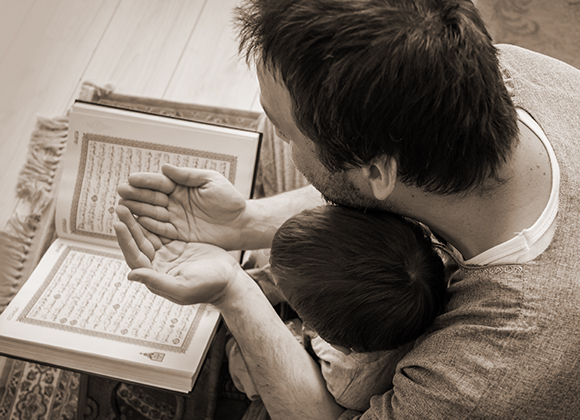
Looking for ways to become a better parent this Ramadan? Well, if you have one of those older kids who looks for trouble wherever she goes . . . and if she can’t find it, she’ll make her own . . . why not work on becoming more patient with your challenging child this Ramadan.
You know the one — she starts fights with siblings, talks back to you, and stomps around the house with a grouchy pout. She even throws her own personalized tantrums. Well, believe it or not, you are not the only one has one of these unique progeny specimens. Welcome to the exclusive club of parents with children who have extreme behavioral problems.
The following are successful practices I have used to gain a tremendous turnaround in combative behavior from children with extremely obstinate behavior.
Be Patient
Realize that the task ahead of you can possibly take years before you see monumental improvement. You are likely to see incremental progress sooner, however. Remember, success is with the patient:
“O you who have believed, persevere and endure and remain stationed and fear Allah that you may be successful.” (Surah Al Imran, 3:200)
Observe Your Behavior
The importance of your setting a good example for your child to pattern after cannot be overemphasized. If you have a habit of lashing out at others when you are angry, your child has a model to follow. If you are patient and respond calmly to problems—again, your child has a pattern to follow.
How to Win a Meaningful Ramadan – Everytime! CLICK HERE!
Discipline Gently
![]() One of the greatest things you can do to help your child who has aggressive tendencies is deal with her in a kind and gentle manner. Learn ways in which the Prophet
One of the greatest things you can do to help your child who has aggressive tendencies is deal with her in a kind and gentle manner. Learn ways in which the Prophet ![]() interacted around children. He was known to be benevolent. It is especially to avoid hitting, rough handling or using aggressive forms of discipline to manage your child’s outbursts. Hitting can have several unproductive side effects, some of which are listed below.
interacted around children. He was known to be benevolent. It is especially to avoid hitting, rough handling or using aggressive forms of discipline to manage your child’s outbursts. Hitting can have several unproductive side effects, some of which are listed below.
- It makes your child more inclined to want to act out violently.
- It shows him this is a preferred way to handle his own problems.
- It can upset the positive relationship you want to foster between you and your child. When your relationship with your child is fractured, you have less influence over his actions and he has less of a desire to please you.
Calm before Correcting
When dealing with your child’s misbehavior, focus on calming her down, allaying her insecurities, or dispensing with her anger prior to attempting to resolve her extreme behavioral eruption. Once your child has calmed down, she will be more able to focus on your instructions. She will also be more inclined towards following your suggestions.
Speak Calmly
Speaking in a calm voice can make your upset child more settled. Whatever you have to say once the flare up has begun, be sure to use a calm controlled voice. When your child sees you maintaining control, it helps her feel secure. She knows someone has control of things even though she’s out of control.
Don’t Be Reactive
Because your child is angry, she might use profanity, shout, call names, hit siblings, slam doors—you fill in the blank______! DO NOT respond at this time to the misbehavior. This is crucial! Your child is unlikely to respond to your requests at this time, and is unlikely to be receptive to penalties. Dispensing penalties at this time will likely escalate the outbursts. Give penalties once the crisis has ended (could be hours, could be a day) and your child is no longer upset. A good time to tell her about her penalty is when she wishes to participate in an activity. Let her know that because she directed profanity at you, she won’t be able to get on the computer for the day. Ensure that your penalties are fair, appropriate and not excessive.
Learn about Developmental Disabilities
Some children with anger management problems and excessively defiant behavior have special needs or behavioral disabilities that parents may be unaware of, such as autism, ADD, Tourette’s syndrome, or cognitive disabilities. Children with special needs experience disappointments due to personal failures on a greater level than the average child. For this reason, they often have more anger, and greater anxiety than the average child.
There are many ways to work on improving ourselves this Ramadan; performing extra prayers, making more dua, and feeding the poor are among the most common. Working on improving our relationship with our children is indeed a noble goal to strive for, as well.
This is an excerpt from Grandma Jeddah’s parenting e-book, Your Challenging Muslim Child with Special Needs. To order her e-book please visit: www.grandmajeddah.com
What are some ways you use to deal with difficult kids? Please share with us in the comments section below.







